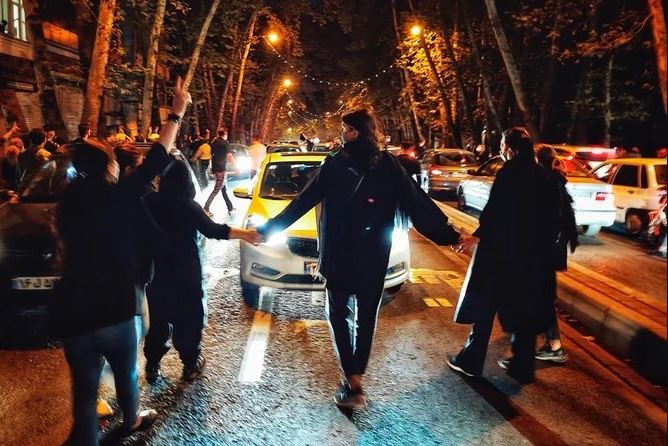Volker Turk, the UN’s high commissioner for human rights, on Tuesday said he is deeply concerned about the unrelenting violent crackdown by security forces on protesters in Iran, including reports of arbitrary arrests and the killing and detention of children.
More than a month after nationwide protests broke out over the death in police custody of 23-year-old Mahsa Amini, as many as 23 children have been killed and many more injured in a number of provinces by live bullets or metal pellets fired at close range, or by fatal beatings, according to Turk’s office.
Ravina Shamdasani, a spokesperson for the high commissioner, said that security forces have carried out raids on several schools, during which children were arrested, along with school principals who refused to cooperate with the officers.
Iran’s minister of education confirmed that “an unspecified” number of children were sent to “psychological centers” after they were detained while participating in anti-government protests.
“Under human rights treaties, accepted by Iran, the Islamic Republic has an obligation to protect children’s right to life under any circumstances, and to respect and protect their right to freedom of expression and peaceful protest,” according to a statement issued by Shamdasani.
“Along with the mass arrests of protesters, our office has also received reports of the arrests of at least 90 members of civil society, including human rights defenders, lawyers, artists, and journalists. On Oct. 12 three lawyers were arrested as they demonstrated outside the bar association in Tehran.”
A large number of such detainees, along with students, opposition politicians and environmentalists, are among the inmates at Evin prison in Tehran, where a fire broke out on Oct. 15. Although the circumstances surrounding the blaze remain unclear, there have been reports of explosions and gunfire. Iranian officials said at least eight prisoners died and 61 were injured. Many prisoners were reportedly beaten during the incident and transferred to other detention centers.
Shamdasani repeated UN Human Rights Office concerns about “patterns of ill-treatment, torture and medical neglect of prisoners,” and said: “Violations of due process, including keeping prisoners incommunicado in solitary confinement with no access to a lawyer, are common.
“The continued unnecessary and disproportionate use of force against protesters must stop. Arresting people solely for exercising their rights of peaceful assembly and freedom of expression constitutes an arbitrary deprivation of liberty.”
The office has called on Iranian authorities to immediately release all detainees, while reminding them of their obligation under international law to protect the physical and mental health and well-being of inmates, adding that “any use of force must strictly comply with the principles of legality, necessity, proportionality and non-discrimination.”
It also urged the regime in Tehran to conduct “prompt, impartial and independent investigations into all alleged violations, including the killing of children, and to ensure those responsible are prosecuted” and, more broadly, to “address the underlying causes of the grievances of the population instead of using violence to suppress the protests.”

